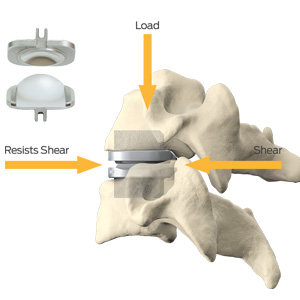What Is Prodisc C?
Prodisc C is an FDA-approved cervical total disc replacement (TDR) designed to treat degenerative disc disease in the neck. Unlike traditional spinal fusion, which limits motion, Prodisc C maintains natural mobility while relieving pain and nerve compression.
Developed with over 30 years of clinical experience and supported by long-term data, Prodisc C is a proven option for patients suffering from neck pain due to herniated or worn-out cervical discs.
When Should I See a Spine Surgeon
Total Disc Replacement as a Fusion Alternative
Why prodisc C?
Benefits of Prodisc C Cervical Disc Replacement
- Preserves natural neck motion
- Provides immediate spinal stability
- Reduces or eliminates chronic neck and arm pain
- Avoids the limitations of spinal fusion
- Speeds up recovery and return to daily activity
Who Is a Candidate for Prodisc C?
You may be a candidate for Prodisc C total disc replacement if you experience:
- Persistent neck pain unresponsive to conservative treatments
- Radiating arm pain, weakness, or numbness
- Herniated or degenerative disc at one or two cervical levels (C3-C7)
- Good bone quality and no major spinal deformity
Patients who want to avoid spinal fusion and preserve range of motion in the neck may be ideal candidates for this innovative technology.
How Prodisc C Works

Prodisc C replaces the damaged disc between two cervical vertebrae with a motion-preserving implant. The design includes a fixed-bearing core, which promotes stability and reduces wear. Once implanted, the artificial disc restores normal spacing between vertebrae and allows for flexion, extension, and rotation of the neck.
This disc replacement mimics natural spinal function, allowing patients to move their neck without the stiffness or limitations caused by fusion.
Recovery After Cervical Total Disc Replacement
What to Expect After Prodisc C Surgery
Most patients experience significant symptom relief within days of surgery. With minimally invasive techniques, recovery is typically faster than with fusion. You may return to work or light activity within a few weeks, depending on your job and overall health.
Physical therapy and post-operative care will focus on restoring strength, mobility, and preventing future neck issues.
Patient Testimonial Video
Brian Gay – Celebrity Story
Rory Sabbatini - Celebrity Story
Joe’s – Prodisc Patient Story




